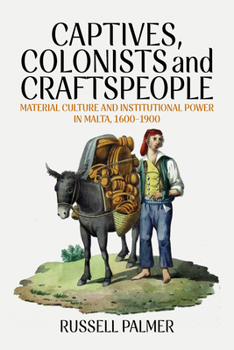Captives, Colonists and Craftspeople: Material Culture and Institutional Power in Malta, 1600-1900
Over the course of four centuries, the island of Malta underwent several significant political transformations, including its roles as a Catholic bastion under the Knights of St. John between 1530 and 1798, and as a British maritime hub in the nineteenth century. This innovative study draws on both archival evidence and archeological findings to compare slavery and coerced labor, resource control, globalization, and other historical phenomena in Malta under the two regimes: one feudal, the other colonial. Spanning conventional divides between the early and late modern eras, Russell Palmer offers here a rich analysis of a Mediterranean island against a background of immense European and global change.
Format:Hardcover
Language:English
ISBN:1789207789
ISBN13:9781789207781
Release Date:October 2020
Publisher:Berghahn Books
Length:286 Pages
Weight:1.21 lbs.
Dimensions:0.7" x 6.0" x 9.0"
Related Subjects
History Political Science Politics & Social Sciences Social Science Social SciencesCustomer Reviews
0 rating





